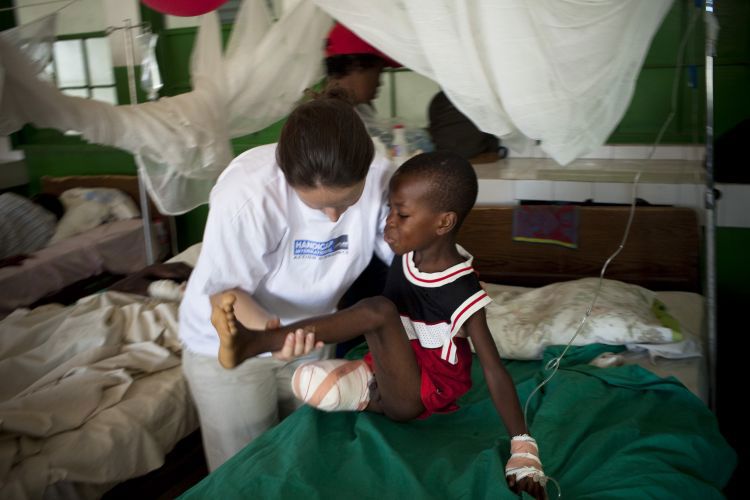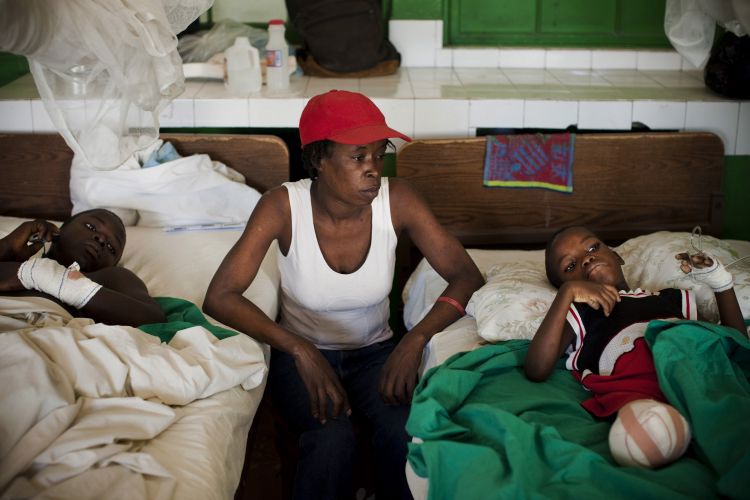MSF's emergency wards in Haiti are still treating large numbers of patients but the nature of their injuries or conditions is gradually changing. There are fewer appearing with wounds directly caused by the earthquake but now the indirect consequence on people's health is showing itself as more children start suffering from diarrhoea and more people are coming forward with physical symptoms of mental trauma. There are also a few cases appearing of tetanus - a very dangerous illness. The operating theatres are still very busy however, with the two teams in Leogane dealing with 30 operations a day, as is the new hospital in Carrefour, while the inflatable hospital in St Loius is still working on cases of compound fractures, and the theatres in Choscal dealing amongst other things with some bullet wounds and car accidents.
The pressing need for post operative care and the space to provide it has driven a number of developments. Facilities are now ready in Delmas 30, which will start taking patients this week to the 100 beds there, in Bicentaire, where 60 beds are ready under canvas and in the Lycee site in Port au Prince, which opened for work yesterday. There is some concern that patients who were treated in facilities not run by MSF may not be coming forward to get the longer term care that they need and MSF is starting to search out these cases in the city.
There are a few cases now of children needing theraputic feeding in MSF's hospitals, although it is not yet clear that these are the result of more widespread nutritional problems. And the impact of the disaster on very many people's mental health is leading MSF to extend its work in that direction. The mobile clinics that are being run in Port au Prince and see up to 140 people a day now have a mental health specialist with them, as do the outreach posts in the towns of Dufour and Darbon. In Leogane, around 20% of the consultations are for mental health issues.
The work with water and sanitation is also growing. In a number of places where MSF has medical facilities, the local community is getting help with these vital services. In the Grace International camp, MSF is providing water trucking to a bladder for 15,000 people. In Jacmel town there are latrines, showers and water supplies, as there are near the hospital at St Loius and in Leogane town. The team there is looking towards the next step of providing these to smaller encampments along the road outside the town.



